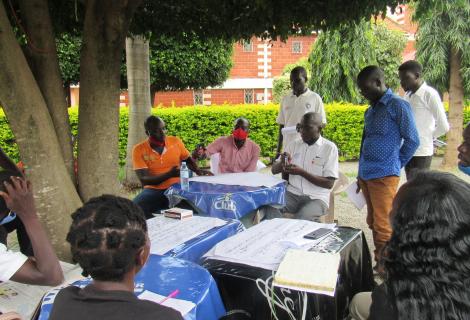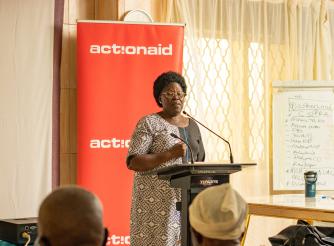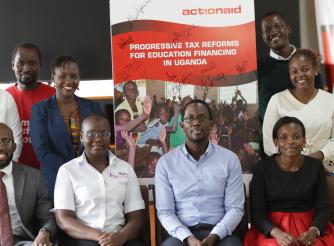Anti-corruption crusaders meet in West Nile and Bunyoro to re-strategize on reinvigorating Black Monday anti-graft campaign.

By Shibah Namulindwa
Following a relaunch of the Black Monday campaign in 2019, citizens held a planning meeting in Hoima and Nebbi, supported by the Democratic Governance Facility to discuss key actions that will be undertaken in the campaign against theft of public resources. The meetings attracted more than 40 citizens from different CSOs and communities. The major aim was to mobilize citizens to rally against corruption in all its forms through Individual and collective actions and contributions.
In his Remarks, the Interim Programs and Policy Director Henry Nickson Ogwal noted that citizens should be angry when taxpayer’s money is swindled. He further urged citizens and participants to be empowered and hold their leaders accountable. He noted that Uganda is suffering a debt burden of 45-49% of its budget to paying loans which all end up being stolen by those holding power.
“It’s the constitutional mandate of every Uganda to participate in the governance systems of his/her country, citizens have power and must use it to challenge theft of public resources” he noted.
Article 17 (I) and 38 of the constitution provides that every citizen has a right to participate in the governance processes of their country and the duty of citizens to challenge corruption in all its forms. This forms a basis for citizen mobilization to rally against corruption. Citizens can undertake anti-corruption actions at all levels as individuals and as collectives to challenge theft of public resources. The Black Monday campaign intended to empower citizens to demand for accountability, gather evidence to challenge graft, and boycott all associations with the corrupt as noted by Mr. Michael Aboneka, the AGHA project Coordinator.
This meeting provided an opportunity to map out key regional corruption issues to be able to contextualize and localize the campaign. Among the key outstanding issues identified during the analysis were Charging of 500,000/=annual fees for renewal of NGO MOUs by Hoima district which is an exorbitant charge for struggling CSOs who can barely sustain this amount annually, this in turn has affected the operations of many and some have closed shop due these unfair compliance conditions in Hoima. In addition, both regions also noted facing election violence, voter bribery, decline in the quality of public service delivery due to staff absenteeism in health facilities, payment of police bond in West Nile, arrests and intimidation of citizens who can come out to challenge corruption as some of the key corruption challenges being faced.
As a resolution, Citizens proposed that there is need to strengthen the Black Monday campaign at local levels, through community outreaches and rally citizens to be part of the campaign to amplify their voices; Building synergies among different anti-corruption crusaders and institutions for support, translation of the black Monday newsletter into local languages, strengthening the sensitization campaign on corruption and popularize the Black Monday campaign at local level through decentralization of all its actions.
The Citizens also appreciated AAIU for the planning meetings that provided an opportunity for their input.
“Involvement citizens from the start gives them ownership of the struggle and they can freely and actively participate without expecting anything in return” as noted by Anyolitho William one of the anti-corruption Crusader in West Nile region.


